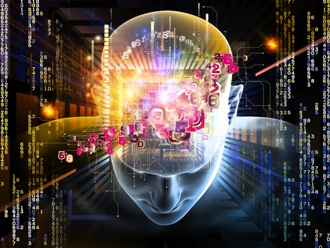Fears that new machines would gobble up jobs and turn society upside down were widespread as the Industrial Revolution unfolded two centuries ago. Back then the controversy over the dangers posed by machines was known as the “machinery question”. Now a very similar debate is under way once again, thanks to advances in artificial intelligence (AI), which allow machines to perform tasks that could previously be done only by humans.
The field of artificial intelligence was founded in the 1950s, and for decades it promised far more than it could deliver. But in the past five years it has taken off, thanks to a versatile technique called “deep learning”, which can be applied to a vast range of tasks. A deep-learning system recently defeated one of the world’s best human players of Go, a game long considered too complex for a machine to master. Deep-learning systems power Google’s search engine, Facebook’s automatic photo tagging, Apple’s voice assistant, Amazon’s shopping recommendations and Tesla’s self-driving cars. Billions of people are using AI technology every day without realising it. As the technology improves and is more widely applied, its impact could be dramatic.
This week The Economist publishes a special report on artificial intelligence, written by Tom Standage, the paper’s deputy editor. It examines in detail what history can teach us about the future of artificial intelligence, its risks and benefits, and how society should respond. Among its findings:
- AI will transform urban environments as self-driving vehicles reduce the need for car ownership. Computer interfaces will become more predictive and conversational, making services easier to use and broadening access. Real-time translation will allow people who do not speak each other’s languages to converse. Devices of all kinds will get better at anticipating their users’ needs. And scientific and medical research will be supercharged by AI systems capable of analysing mountains of information and spotting connections and correlations that humans cannot see.
- But AI will also cause dislocations in labour markets, as previous technologies have, by changing the mix of skills required to do different jobs. One widely cited study predicts that 47% of American jobs are in danger of automation in the next two decades. That figure is far too pessimistic, and history shows that in the long run new technologies create more jobs than they destroy. But the transition will require many people to learn new skills and change the way they work.
- That in turn means that AI will require education, training and welfare systems to be overhauled. Such systems were set up in response to the Industrial Revolution, and need to be made much more flexible. There will have to be more emphasis on lifelong learning and on-the-job training, and wider use of online learning. AI may itself play a part in the reinvention of education, by personalising computer-based learning to improve its effectiveness.
- At the same time, welfare systems will have to be updated to smooth transitions between jobs and support workers while they acquire new skills. Denmark’s “flexicurity” system provides a model for other countries in this regard. But the idea of a “universal basic income”, widely proposed as a panacea for technology’s impact on labour markets, would be impractical.
- Fears often voiced in science fiction that artificial intelligence could run out of control and turn on its creators are considered unrealistic by most AI researchers. But the technology raises other difficult ethical questions, such as whether it should be used for military purposes, whether ever-improving facial-recognition systems pose a serious threat to privacy, and who should be liable for the decisions of self-driving vehicles.
To read the full report, please click here.








